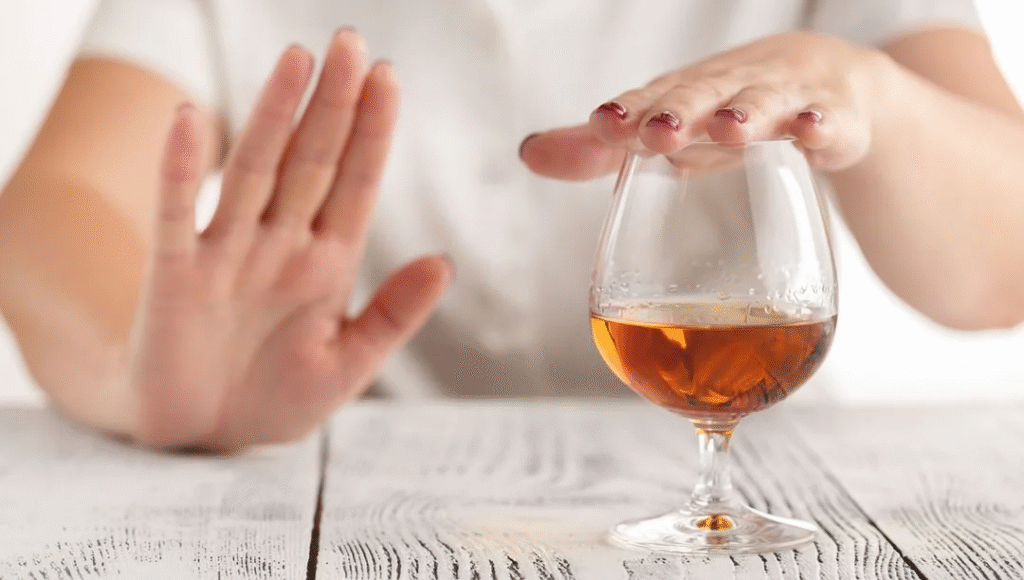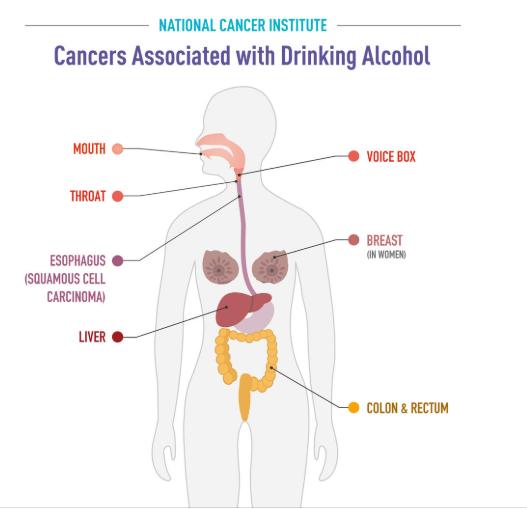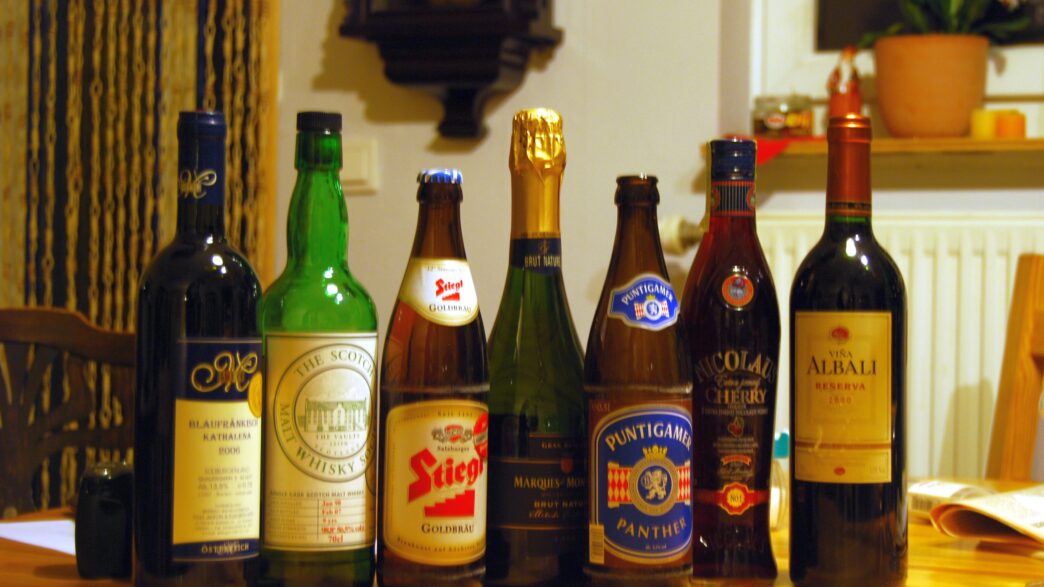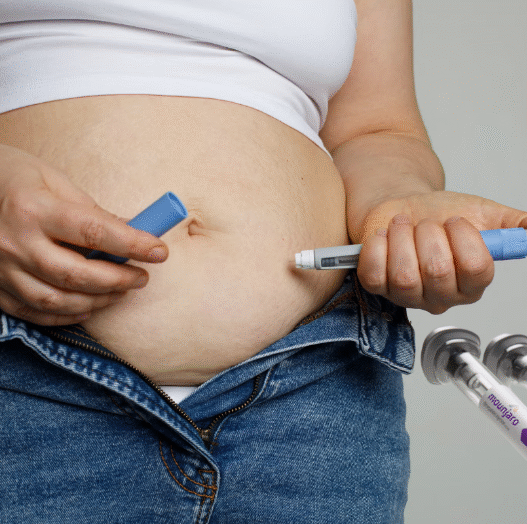A recent scientific study connects seven different kinds of cancer risk to low levels of alcohol intake. Researchers note that even moderate drinking raises one’s chance of cancer.
Key Points
- According to a fresh research study ordered by the federal government, drinking alcohol is related to cancer.
- According to the study, alcohol elevates the risk of seven cancers and women are particularly vulnerable given the strong association between alcohol and breast cancer.
- Although scientists assert officials have elected not to use the results, the government financed the study to guide an update to the U.S. Dietary Guidelines for Americans.

According to a recent scientific study, even moderate drinking raises one’s chance of cancer. Researchers discovered that alcohol’s adverse health effects begin with any degree of consumption and grow with rising intake.
Sponsored by the U.S. federal government, the Alcohol Intake & Health Study aimed to inform the improvement of the Dietary Guidelines for Americans for 2025–2030; a draft report was posted online for public comment in January.
But according to study coauthor Tim Naimi, MD, MPH, federal health officials do not intend to present the ultimate report to Congress as intended. Director of the Canadian Institute for Substance Use Research at the University of Victoria in British Columbia.
A U.S. Department of Health and Human Services (HHS) representative did not reply by the deadline to a request for comment.
Under current U.S. dietary recommendations, men should limit alcohol to two drinks or fewer per day and women to one drink or fewer per day. Based on the updated study, Dr. Naimi considers that suggestion “quite risky.”

Low alcohol levels are connected to increased cancer risk
Along with statistical models based on the American population, the study includes an in-depth examination of current research. The scientists arranged the data according to their daily drink consumption.
If men and women drink seven or more beverages each week, the researchers found they have a one in 1,000 probability of passing from alcohol use. If they drink more than nine beverages each week, this risk rises to 1 in 100.
The paper also connects drinking with a greater risk of death from colorectal, breast, liver, oral, pharyngeal, laryngeal, and esophageal cancers.
“We discovered that any alcohol use marks the beginning of the risk of developing an alcohol-related malignancy, which rises with increasing levels of consumption and that women. When drinking the same amount as men, women have a greater risk of an alcohol-related cancer mostly motivated by the tight relationship between alcohol use, Priscilla Martinez, PhD, a study coauthor and deputy scientific director of the Alcohol Research Group, says.
Results coincide with the growing scientific consensus.
Typically, in academic journal submissions, the draft report has not yet undergone peer review a necessary step for accuracy. (The scientists want to publish.)
Still, oncologists claim the results are reliable. “It has been known for decades that even low levels of alcohol can raise risk above zero.” “The more alcohol you consume, the larger the excess risk,” says Kathleen Egan, ScD, a cancer epidemiologist at Moffitt Cancer Center in Tampa, Florida.
Agreeing, Nilesh Vora, MD, oncologist and medical director of the MemorialCare Todd Cancer Institute at Long Beach Medical Center in California, notes that the results are “not surprising.”
Dr. Vora notes, “We have always known that alcohol has been a risk factor for cancer. What’s interesting about this study is that it’s 81 pages long. It investigates a considerably more profound level of forming a connection between alcohol consumption and the development of cancer.”
According to 2021 research published by the World Health Organization (WHO), almost 750,000 cancer cases discovered globally in 2020, about 4 percent, could be related to alcohol. Light and moderate consumption made up more than 100,000 of those instances.
In January 2025, then-U.S. Surgeon General Vivek Murthy, MD, issued an advisory advocating for updated warnings on alcoholic beverages, pointing out that drinking alcohol increases the possibility of many different forms of cancer.
Most Americans, according to a scientific study released by the National Cancer Institute in 2023, are not aware of the link between alcohol and cancer. For those who know about the connection, some incorrectly conclude that wine is excluded from this association.
Americans Are Reducing Their Drinking
According to Gallup survey data made public in August 2025, 54 percent of Americans are consuming less than before. American adults consume alcohol, a historical low. It is reduced from 67% of American adults who said they drank in 2022.
Ultimately, Naimi adds, people should make their own decisions regarding alcohol and health; however, they must make educated choices. He adds, “It’s really important that people are advocates for their own health and get excellent scientific information.”
Resources
- Shield K et al. Draft Report: Scientific Findings of the Alcohol Intake & Health Study for Public Comment. Substance Abuse and Mental Health Services Administration. January 2025.
- Guidance on Alcoholic Beverages in the Dietary Guidelines for Americans. Dietary Guidelines for Americans.
- Rumgay H et al. Global Burden of Cancer in 2020 attributable to Alcohol Consumption: a Population-Based Study. The Lancet Oncology. August 2021.
- Murthy V et al. Alcohol and Cancer Risk. U.S. Department of Health and Human Services. January 2025.
- Seindberg A et al. Do Beliefs about Alcohol and Cancer Risk Vary by Alcoholic Beverage Type and Heart Disease Risk Beliefs? Cancer Epidemiology, Biomarkers & Prevention. January 9, 2023.
- U.S. Drinking Rate at New Low as Alcohol Concerns Surge. Gallup. August 13, 2025.

















